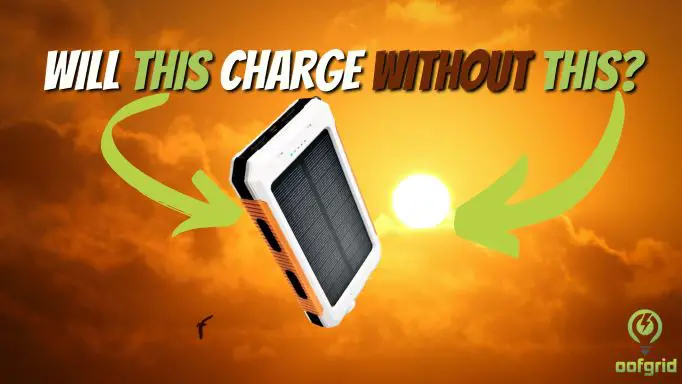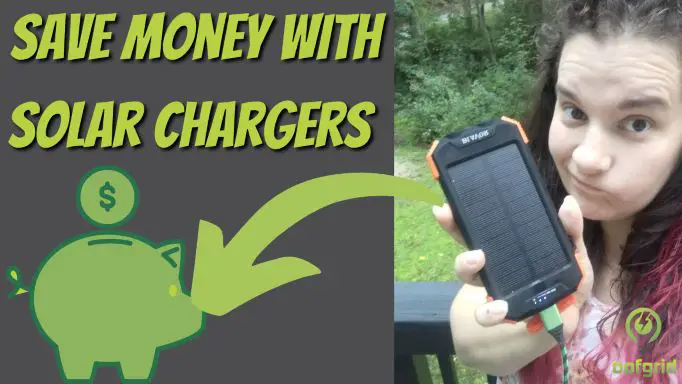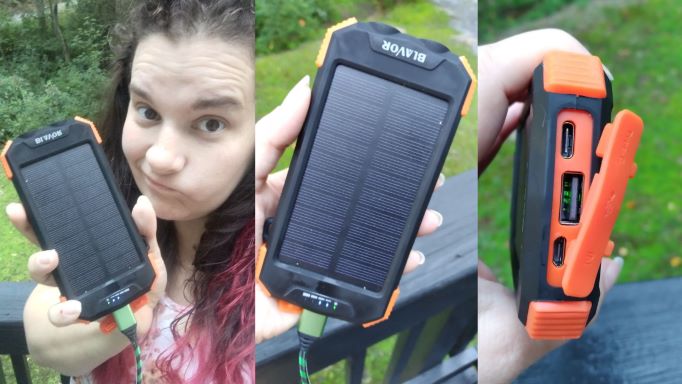Are you looking for a reliable backup or travel power solution for your CPAP machine? Don’t let mains power hold you back! Read on for our take on the top three power supplies that every CPAP machine user needs on hand.
Powering your non-invasive ventilation is a priority.
If you have struggled with the debilitating exhaustion and poor health associated with Obstructive Sleep Apnea (OSA), you will certainly know the difference use of a CPAP machine makes to your quality of life and wellbeing. CPAP machines support the sleep of people affected by OSA by supplying air under pressure that works to splint open collapsible upper airways.
It is a physician-prescribed therapy, and once started CPAP should be continued without interruption as it protects against the long term risk of hypertension diabetes heart disease, and accidents due to excessive daytime drowsiness.
To prevent harmful episodes where your breathing may stop while you are asleep, the CPAP machine needs to run continually. A one-off interruption in the power supply is unlikely to cause you significant short term harm, but over multiple nights missing out on CPAP can lead to a recurrence of the sometimes debilitating daytime symptoms.

This is why power management for CPAP machines is of critical importance. As medical devices, you should arrange a source of backup power so that its routine use can continue if there is a power cut or you are staying in a place without power such as a campsite. Having an alternate power supply will give you the confidence to travel overseas or perhaps stay in off-grid locations as your CPAP will have all the power it needs.
For more information on your options for powering your CPAP machine, read the article “CPAP Battery Solutions For When There’s No Power“
Contents
Top choices for a travel CPAP power supply
In this article, we will take a look at three excellent options for reliable portable power for a CPAP machine. These are great, travel-friendly units that do the job of keeping your non-invasive ventilation running effectively without mains power.
Having a power bank or battery pack to hand really expands the scope of what you can do while on CPAP and each of these units will make an extended excursion entirely possible.
What to look for in a CPAP battery pack
Here are some key considerations for evaluating an alternate power supply for your CPAP:
- Power consumption of your CPAP machine. Modern CPAP machines are sophisticated with additional numerous features and settings in addition to the basic ventilator function. This means a power rating of 80 Watts or more needs to be planned for.
- The capacity of your battery. To know the size of the deep cycle you need for your CPAP machine, you will need to calculate the ampere-hours of battery capacity you will need to have to hand to power your CPAP for the duration you are without mains power. To work out your requirements you will need to know the wattage and voltage of your CPAP machine. Use the formula watts ÷ volts=amps. Take the amps value and multiply it by the number of hours you will be operating the CPAP machine: amps×hours= ampere-hours. This is the capacity rating you need to be on the lookout for on your battery pack. Use our wattage calculator for more help.
- Weight of the power bank. Power stations and battery packs with the capacity to serve your CPAP machine over several days are likely to be weighty. However, there are many handheld units that have the capacity and portability needed for outdoor overnight stays.
- Ease of use. If you are used to a plug and play approach to powering your CPAP, look for battery generators or solar generators that come with a range of outlets including a classic ‘household’ 120V outlet.
- Need for adapters or converters. Depending on the brand of CPAP machine you use, you may find yourself needing additional branded adapters which are an added expense. This is why the outlets available are so important for making your travel CPAP power supply cost-effective.
Top 3 Power Supplies for CPAP Machines
1. Jackery Portable Power Station
- Easy to Carry: This entry level portable power station is equipped with an excellent 240Wh lithium-ion battery...
- Versatile Power Source: The Explorer 240 is extremely versatile, featuring 1 pure sine wave AC outlet (110V...
- Green Power Supply: The power station can be recharged by either the Jackery SolarSaga 60 Solar Panel or...
- Two Alternative Recharging Methods: Two further charging methods are also available, with the power station....
- What's Included: 1 * Jackery Explorer 240 Portable Power Station, 1 * AC Adapter, 1 * Car Charger Cable, 1 *...
Last update on 2025-08-30 / Affiliate links / Images from Amazon Product Advertising API
Key features
- Lithium-ion battery
- 16.8 Ah power
- Multiple outlets:
- 110 V household AC outlet
- Two USB ports
- One DC carport
- Solar generator setup available
- Product dimensions: 5.19 x 9.05 x 7.67 inches
- Product weight: 6.6 pounds
- Warranty included
Outdoor experts Jackery are behind this popular outdoor power station that is able to take power to the most remote locations. It is hand-held with a comfortable handle and weighs just over 6 pounds despite having more than enough juice to power a CPAP machine with basic settings for several nights.
If you are anything like us you may struggle to keep your tech gadgets being plugged in too via the USB ports available. The Jackery 240 delivers clean sine wave AC power and better still, it can be readily paired up with a matching solar panel (at extra cost) to keep your power station recharged on sunny days.
✅ What we liked
- CPAP users report that a Philips Respironics Dream Station can run for up to 5 nights on a single charge.
- Jackery provides exceptional responsive customer service and technical support to its customers.
❌ What could be better
- If you are connecting your CPAP to this power bank it is important to know that this unit does not deliver “passthrough” power and will cut out after 3 hours of use. Jackery are aware of this issue for CPAP users and are looking into it.
- CPAP users with very power efficient machines need to ensure that their CPAP draws enough power to prevent the Jackery from slipping into standby mode.
Read more reviews on Amazon ↗️
2. Rockpals 300W Power Station
No products found.
Key Features
- Lithium-ion battery
- 280Wh power 18.7Ah
- Multiple outlets:
- DC and AC outlets
- USB ports
- One DC outlet
- Integrated LED and flashlight
- Able to operate as a solar generator
- Product dimensions: 7.48 x 5.9 x 5.5 inches
- Product weight: 7.4 pounds
- 18-month warranty included
This portable power station makes a great partner for active CPAP users who love the great outdoors. It can deliver running power of up to 300 watts which is more than adequate for most home CPAP machines. ROCKPALS are well aware of the needs of users like you and advise using a DC converter to get additional use from this power station.
It’s great that you can plug your CPAP right in via the regular AC household socket to get your machine up and running in no time. This unit delivers the good clean sine wave energy that your device will need to perform properly. As with the Jackery, it is best that you ring-fence those handy USB ports from phones and tablets that need a charge.
Another great feature of this power bank is the ease with which you can recharge it, either from a mains supply or via an attached solar panel. From mains electricity, a full charge is obtained within 6 to 8 hours.
✅ What we liked
- The backlit LED digital control panel enables you to tau ahead of your power consumption which is helpful if you are relying on it for a medical device.
- An integrated flashlight is handy if you need to adjust your mask or settings at night.
- CPAP users with higher pressure settings (above 10cm water) report lengthy use with this power station. As mentioned above, switching off humidity and heated tubing helps.
❌ What could be better
- Some purchasers report problems with product failure. We strongly advise you to test all the power stations reviewed before relying on them on a trip.
Read more reviews on Amazon ↗️
3. Goal Zero Yeti 400
No products found.
Key Features
- Lithium-ion battery
- 300 running Watts
- 600 surge Watts
- 132,000mAh
- Multiple outlets:
- AC outlet
- DC outlet
- USB ports
- Wireless app control
- Can be used as a solar generator
- Product dimensions: 18 x 13 x 13 inches
- Product weight:44pounds
- 18-month warranty included
This behemoth of a battery power station is the next best thing to a gasoline generator and has the capacity and performance to compete. The Zero Yeti is more than able to power a small household’s appliances and lights for several hours, so its 300 Watt AC output is more than enough to drive CPAP and more on an extended trip.
Many purchasers stow this power station fully charged at home in case of a power cut as it will hold its charge without use for up to a year. But at 44 pounds it is more than up to the job of being stowed in your car or RV for an outdoor weekend.
The unit itself looks imposing but opens at the top to expose all outlets needed for a full plug and play experience. Just plug in your CPAP as you would at home and you are ready to go. Up to 10 items can run off this power station at once so we’re sure your USB ports will get plenty of use.
If capacity and portability are not enough Zero Yeti take things further by making the whole thing ‘smart’! Download their proprietary app to control your power station via your phone, including switching the power on or off. You can also keep this high capacity battery topped up by connecting a solar panel for added get up and go!
✅ What we liked
- This battery is rated for 500 full charging cycles meaning you should be able to get a lot of use out of it.
- You should have adequate power for a household as well as your CPAP on a short camping trip.
- Users report that this power station performs well with a sat panel connected.
❌ What we didn’t like
- The connectivity for this power station is not peer to peer (direct) but requires a WiFi connection.
Read more reviews on Amazon ↗️
Frequently asked questions
Q. Can I use a gasoline generator to power my CPAP?
A. If you are planning a long trip and don’t want to risk running out of power a high-quality portable generator or dual fuel generator can provide as much power as needed to keep your CPAP and other appliances running smoothly.
Read some helpful reviews in this article on the best dual fuel portable generator.
Q. Can I take my CPAP power bank on a domestic flight?
A. Depending on size, a lithium-ion battery power bank for your CPAP may be able to be taken on a flight if stowed on your hand luggage, so it can be accessed in case of problems. For extremely large batteries and CPAP devices, medical clearance may be needed. It is best to clarify the situation with your airline before flying.
Rounding up
It’s great that CPAP no longer holds you back from enjoying travel and recreation. Finding suitable power solutions that are efficient and easy to manage and used make that special trip or excursion totally stress-free.
We hope that you will find these selections a useful guide to the types of power stations available to supply your CPAP machine away from home. These power banks also make a great backup for your home in case of a storm or power outage.
Do you have any tips or recommendations for CPAP portable power? Let us know your thoughts in the comments section below.










